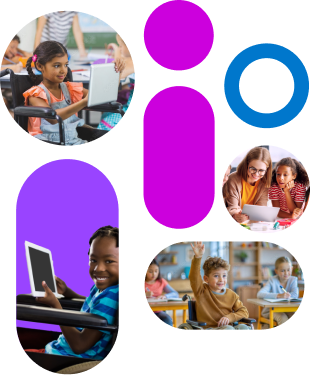Africa
Across Africa, the educational landscape faces a significant challenge in ensuring equitable access for individuals with print disabilities, particularly those who are visually impaired. Limited resources, inadequate awareness, and outdated pedagogical practices often serve as barriers to mainstream learning opportunities.

Benetech’s multifaceted strategy
Benetech adopts a comprehensive approach, forging strategic partnerships with governments, local organizations, and international agencies to empower the visually impaired in several African nations, including Kenya, Burkina Faso, Ghana, and Ethiopia.
Collaborative governance
Benetech actively engages with government entities to develop and implement inclusive education policies. This fosters a systemic approach that prioritizes the needs of the visually impaired within the national education framework, ensuring long-term sustainability.
Leveraging local expertise
Recognizing the value of local context, Benetech collaborates with established organizations like the Kenya Institute for the Blind and similar bodies in other countries. This strategic partnership leverages their expertise and existing networks to effectively reach and support visually impaired individuals within their communities, ensuring culturally appropriate interventions.
Advocating for modern pedagogy
Benetech actively advocates against traditional methods that may be ineffective or even detrimental. This includes promoting a shift away from rote memorization techniques and towards more interactive and engaging learning strategies that cater to the specific needs of visually impaired students.
Empowerment through technology
Benetech champions the power of readily available and cost-effective technology like the Android device + USB keyboard combination. This solution empowers visually impaired students to read and write independently, fostering self-reliance and a sense of ownership over their education.
Collaboration with international partners
Benetech collaborates with international agencies like the International Council for Education of People with Visual Impairment (ICEVI) and Sightsavers. This strategic collaboration facilitates the exchange of best practices, resource pooling, and the development of a unified voice in advocating for the inclusion of the visually impaired across Africa.

Building a culture of inclusion
Benetech’s efforts extend beyond mere technological access. They strive to cultivate an inclusive and empowering environment where visually impaired students feel valued, supported, and capable of achieving academic success. This holistic approach fosters self-confidence, ignites a passion for learning, and equips students with the skills and knowledge needed to thrive academically, professionally, and within their social circles.
By dismantling barriers, promoting innovative solutions, and fostering collaboration across various stakeholders, Benetech paves the way for a brighter future where every visually impaired individual in Africa has the opportunity to reach their full potential and contribute meaningfully to society.
Programs
The post-pandemic rise in technology adoption within visually impaired communities presents a window of opportunity. Benetech is championing accessible technology, actively addressing these challenges through a multi-pronged approach:
Programs in East Africa

Bookshare expansion
Benetech’s Bookshare program has been pivotal in providing accessible reading materials to individuals with reading barriers. In East Africa, they have expanded their reach by creating regional libraries and partnering with local organizations like eKitabu to offer books in local languages.

Leadership and advocacy
Martin Kieti, the Bookshare Program Manager-Africa, leads the outreach efforts in the region. His work involves advocating for the rights of the visually impaired and increasing access to information and technology.
Programs in West Africa

Government collaborations
Benetech works closely with governments and national organizations for the blind to promote digital literacy. They focus on integrating accessible educational resources and supporting policies that favor technology-based learning.

Capacity building
Training programs and workshops are conducted to empower educators and stakeholders, equipping them with the skills to support the visually impaired in accessing digital content.
Trusted by learners and educators
Invest in education for all

